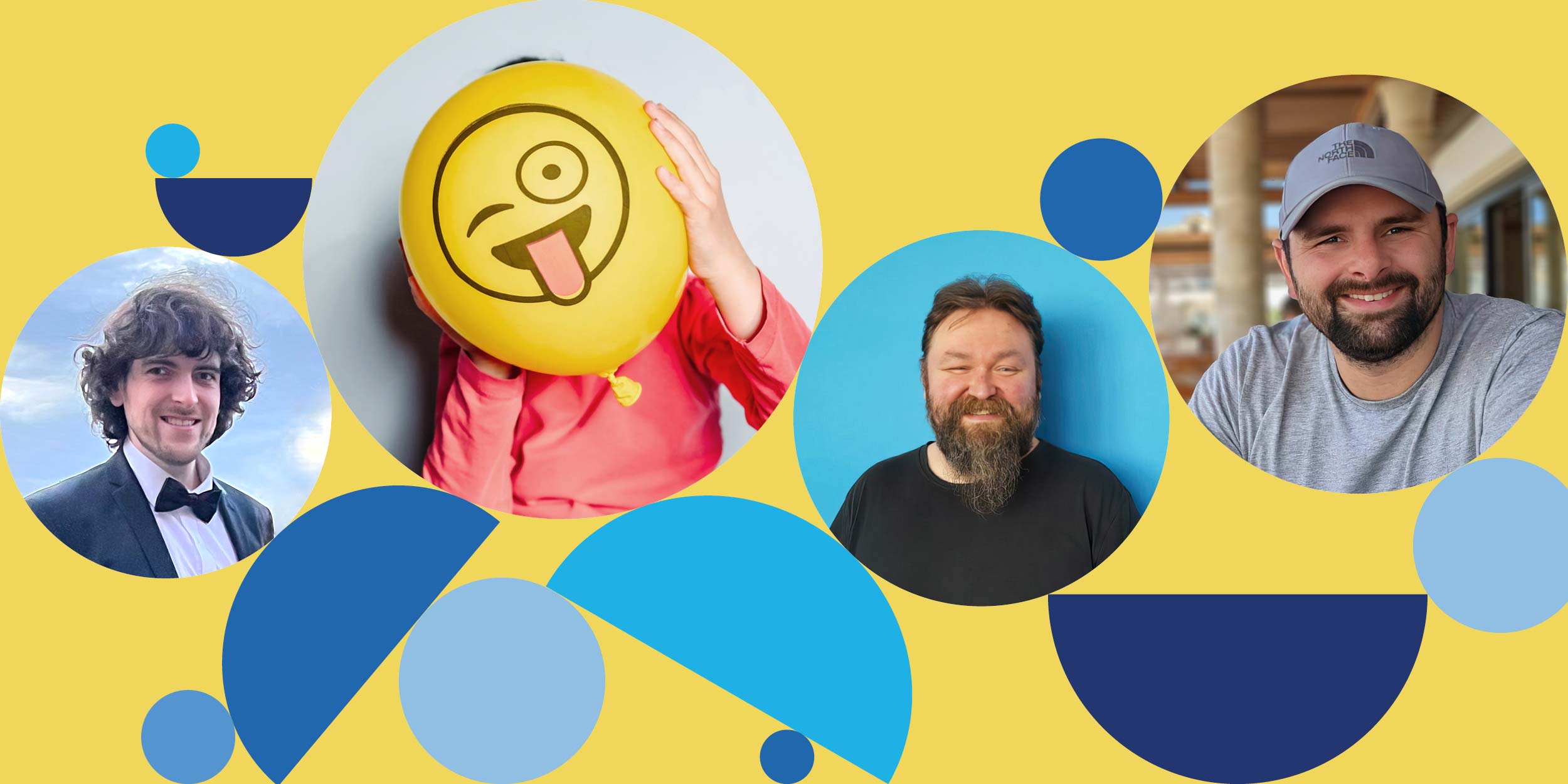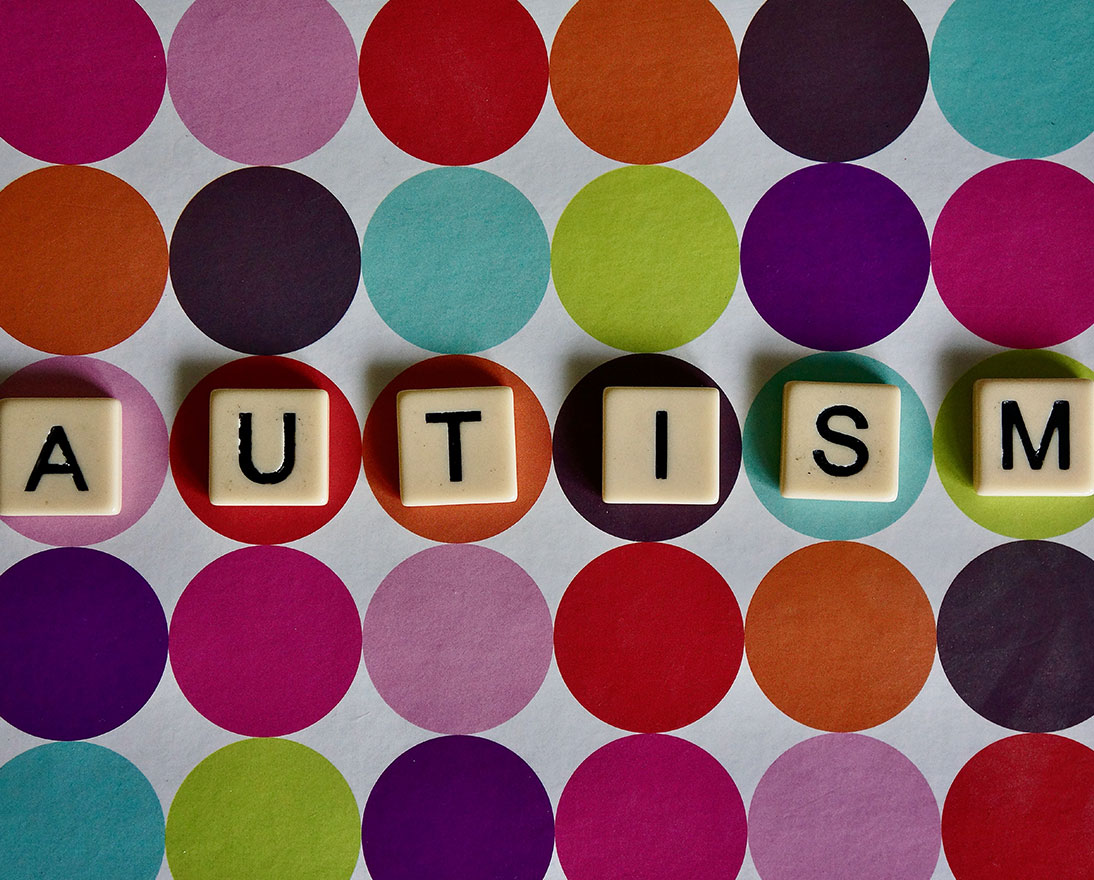The A-listers Part II: Meet more of Zurich’s wonderful autistic talent
PeopleArticleMarch 27, 202314 min read
Too many talented autistic adults are being overlooked by employers. That needs to change. We meet some of Zurich Insurance Group’s autistic employees and learn how autism has impacted their lives and careers.
Chris McGrath: Learning to manage his emotions
Chris McGrath was diagnosed with autism at 16 when he started to struggle with his school examinations. Up to that point, Chris was considered a high performing student, but he was finding it tough to manage his time, balance his workload and experienced difficulties with his handwriting. “With longer essay-style questions, I couldn’t write quickly and legibly within the time limit to finish exams,” explains Chris.
But the signs of autism were already there. Growing up, Chris struggled to make friends and was often considered an awkward child who had anger issues. “Looking back, I didn’t really have anger issues. I was autistic. I was in stressful situations or being bullied and didn’t have coping mechanisms at that point.”
Chris later learned that like many autistic people he struggles with interoception – sometimes called the organ of emotion – which helps us to recognize and respond to our body’s signals. This can make it difficult to know if you’re hungry, thirsty, tired, too hot or too cold.
“It applies to emotions as well,” adds Chris. “Not knowing when you are angry, or tired or scared. That confusion makes it even harder to process the situation. Often when I was younger, I felt angry about nothing. But I wasn’t angry, I was just stressed or panicked about something, or I was feeling sad. But my brain didn’t understand that.
“After my autism diagnosis, a lot of things made more sense, and I learned to develop coping mechanisms.”
These could be simple, such as writing down a list of tasks that need to be completed as Chris struggles to process and remember a verbal list of instructions. This has helped him to become much more organized in life.
At University of Birmingham, UK, where he studied mathematics, Chris was provided with a digital voice recorder to record lectures and was given lecture notes in advance to help him focus. “One of my challenges is multitasking, and so I’m bad at paying attention to a lecture and making notes at the same time.”
But the most valuable support came in the form of a mentor, organized through the university, who was knowledgeable about autism and could help Chris navigate campus life away from his parents.
“It was often simple stuff, like showing me how to use the laundry machines,” explains Chris. “But my mentor also knew who I should approach for help when I struggled with my mental health.”
Chris began to suffer with depression. His autism makes him naturally anxious, but with the stress of university life and the uncertainty of what would come after graduation, it all became overwhelming for Chris. But he was able to defer his studies for a year until he was ready to resume university life.
But Chris needn’t have worried about life after university. He secured a 10-week internship with Zurich UK in August 2019 through the Change 100 program, which is organized by disability charity Leonard Cheshire to find work placements for recent graduates with disabilities, including autism.
Chris was transferred to the Zurich UK graduate program. He then took a temporary position in the technical support team doing mostly administrative work, before joining the Covid Response team when the pandemic struck.
Today, Chris has a permanent role within the property claims team overseeing process improvement and automation projects. It allows him to utilize his logical process-orientated mindset and problem-solving skills and indulge in his love of coding and programming.
He’s adapted to the office environment easier than expected. There are quiet spots where he can work if he’s feeling overwhelmed in the main office and he appreciates the supportive culture. For instance, his managers and coworkers will always send an email to plan and explain the purpose of a meeting, rather than appearing unexpectedly at his desk.
“Small things,” says Chris, “but they really make a big difference to my working day.”
What is autism?
Autistic brains think, communicate and process information differently to non-autistic brains. Autistic people often have different sensory experiences, too. This means they see, hear, feel and experience the world differently to other people.
Autism is a spectrum condition. All autistic people share certain challenges. But being autistic will affect them in different ways.
Jürgen Schuch: Removing the mask
It’s not easy to spot an autistic person. Many mask their autism as they feel the need to present social behaviors that are considered neurotypical. This may involve mimicking others or suppressing certain behaviors just to be accepted. But this social survival strategy is an exhausting experience.
“Masking is very demanding as it requires great concentration,” explains Jürgen Schuch, who was diagnosed with autism six years ago. “When I play the role of a different Jürgen, a ‘social Jürgen,’ it means I’m concentrating on masking when I should be concentrating on work.”
Jürgen is a consultant with auticon, an IT and data consultancy that only employs autistic consultants. Since March 2022, he has been supporting Zurich Germany to test, document and rewrite computer code. As well as extensive programming experience, it requires strong attention to detail, high concentration levels, a superb memory and the ability to recognize patterns. It’s an ideal role for Jürgen’s autistic brain.
But what makes this role perfect for Jürgen, is that he can mostly work independently from his home near Munich. And this gives him the freedom to work in a way that optimizes his mind.
If Jürgen sees – or senses – a problem, he’ll read and memorize the code, then go for a walk or play with his cats. “I let the code work in my in the back of my head,” explains Jürgen. “After I’ve found the answer, I’ll go back to my computer and create a solution.”
Jürgen’s mind can absorb an incredible amount of information. It can be overwhelming, and it requires him to occasionally take a nap during the day then work late into the evening. But since his autism diagnosis, Jürgen has learned to filter out unnecessary information to avoid brain overload.
Although highly effective, Jürgen’s unique problem-solving style has troubled former colleagues. “They just saw a guy walking around not knowing that I was doing my job in my head,” he says.
This is one reason Jürgen has had difficulty holding down jobs. “I struggled with social relations and small talk,” he says. “I had problems when I looked at people’s faces and what I saw was different to what they were saying. I was confused about this, but I didn’t know why.”
Jürgen’s diagnosis in 2018 was a turning point. “It was such a relief. I always felt there was something different about me, but I couldn’t put a finger on it,” he says. “It helped my wife and family to better understand me, and for me to better understand their reactions.”
Shortly afterwards, he joined auticon and was able to work with freedom. “At auticon I don’t have to mask. I can just concentrate on my work,” says Jürgen, who now mentors new auticon consultants.
Jürgen says autistic people can bring fresh perspectives to the workplace and different approaches to problem solving. “Embrace the difference,” Jürgen advises employers. “Difference is not bad. Talk to your autistic people and ask them what they need to feel OK and to do their work. And remember that autistic people are still just people.”
James Marygold: Thinking in black and white
James Marygold suspected he was autistic at 13 – eight years before his diagnosis.
“I started to notice I had certain traits,” says James. “I liked things in a particular way, and I had set routines and rules. It was mostly subtle. For example, when I had my dinner, I’d always eat the meat first, followed by the vegetables and then the potato. And I would become frustrated if somebody ate them in a different order.”
He also struggled to make direct eye contact, would often take other people literally (sarcasm was lost on him) and would think in black and white. “When I was young, life was very binary for me. There was either a right way or a wrong way to do something,” he explains. “I guess that’s why I did so well in mathematics because there was only one right answer. But I struggled with topics like English, history and creative writing.”
James was familiar with autism as his mother worked as a teaching assistant supporting autistic primary school children – although she never suspected her son was autistic. But James’s self-awareness that he was a little different to others meant he started to adopt coping mechanisms, particularly mimicking.
“For instance, I’d go to a shop and watch how somebody interacted with the cashier. I’d evaluate the outcome and decide whether it was a success or a failure. And if it was a success, I’d mimic that behavior for the next time I was in a shop. I got through many situations by observing how others did it before me.”
James successfully navigated his school years and socialized within a small network of friends. At the University of Liverpool, James was doing well studying mathematics. Then, at the start of his second year, he moved into a house with other students sharing a kitchen and bathroom. James began to get stressed and anxious in this new environment – particularly with the lack of cleanliness.
“That’s when I thought there must be more to these traits than meets the eye. I spoke to my local doctor and was referred to a psychologist who diagnosed me with autism.”
With an autism diagnosis at 21, James learned to better understand himself and it also gave him access to greater support. James managed to secure a place in university accommodation where he had an en suite bathroom and his own space.
James also got support with employment. Through a charity called Whizz-Kidz, which helps find employment opportunities for disabled adults, James got a nine-month internship in Zurich UK’s HR department. He had jumped onto the career ladder without having to go through an interview process, which is a stressful ordeal for many autistic adults as it requires strong social and communication skills.
James was also fortunate to sit close to the talent team. “They helped find me a role where I could use my mathematics degree – as an actuarial analyst in the finance department.” Now, more than eight years since joining Zurich UK, James is a management information specialist.
He enjoys his current role, especially as it plays to his strengths. “I’m good at problem solving,” says James. “I can sit in the same spot for four or five hours, hold my focus and solve problems, like building a query to extract some obscure data.”
Only one thing will distract James, and that’s his wife Beth. Thanks to his autism diagnosis, James was able to finish his university studies and, importantly, meet his future wife.
Abba: Driven by preoccupations
Meet Abba. That’s not his real name as he asked not to be identified for this article. And it’s not because he’s ashamed to be autistic. Quite the opposite, he likes to speak about his experiences even though he describes himself as a “massive stereotype” – he likes routines, struggles with eye contact, studied mathematics, etc. The reason Abba prefers anonymity is because he works in a cybersecurity role for Zurich and is naturally cautious about sharing his information online. But he admits what really drives his decision to be anonymous is his autism.
Abba is prone to becoming preoccupied with topics. For instance, he has become obsessed with data privacy since studying for his current role. “When I gain preoccupations, I don’t do things by halves,” he explains. “I can research topics in a lot of depth, and if I wasn’t autistic, I would have probably stopped at what was needed for my job. But I became very interested in further study and tried to apply privacy aspects to my life.”
He says he doesn’t have much control over what topics preoccupy him. “Sometimes it’s helpful, for instance, with cybersecurity for my job or with finances when I was buying a house. But I am also preoccupied with the Eurovision song contest [it’s why we gave him the name ‘Abba’ as they won it in 1974] and when I was a kid, I was even preoccupied with Dyson vacuum cleaners. I could tell you about all the models that were out at that time!”
Although diagnosed at age 3, Abba wasn’t told he was autistic until he was 7. He then became preoccupied with trying to fit into the mold of a neurotypical person by masking his traits. His challenges were amplified by also having dyspraxia – a disorder that affects movement, balance, sensory awareness and co-ordination. Abba walks with a gait that he says has been compared to a walking robot or penguin. He also struggles with sports that require specific movements, like tennis, badminton and football.
Abba’s “verbal dyspraxia,” as he calls it, can also impact his speech. “Sometimes I have the perfect sentence in my head, but for some reason the words don’t come out of my mouth.”
His autism and dyspraxia made school life challenging as he was sometimes bullied for being different. The teachers didn’t help, forcing Abba to make eye contact or telling him to walk without his gait. Looking back, Abba is frustrated at the lack of support from his teachers, “who should have known better.” But it didn’t stop Abba thriving at university where he studied mathematics and then a master’s in statistics.
Abba has an interesting “yin and yang” dynamic with his girlfriend who is diagnosed with ADHD. “I’m happy doing the same thing every week, staying at home and not traveling anywhere. But it’s not a good way to live your life. My girlfriend wants to go away all the time and do lots of fun things, but maybe too much. So we meet in the middle. I get a lot more experiences than if I was on my own, and she is kept grounded.”
Abba joined Zurich in August 2021 and is open with his team about his autism. “I don’t feel I’m treated differently in the department. They’re all just nice people.” Abba’s autistic mind helps him to spot issues or bugs with computer code in just seconds. And when he’s “hyper focused,” Abba says he can get a week’s work done in a day. But on the flip side, his autism can cause him to become anxious, which makes it difficult for him to concentrate. The flexibility to work from home allows Abba to focus on his job when he’s feeling at his best.
So how can more employers support autistic talent? Abba says it’s best to just support everyone.
“People shouldn’t need a piece of paper or a diagnosis before being granted accommodations or given support in the workplace,” he says. “I’m fortunate to have a diagnosis, but most autistic people don’t have that piece of paper or maybe don’t realize they’re autistic. So just be considerate to everyone and give them the support they need.”
What is ADHD?
Attention deficit hyperactivity disorder, or ADHD, is a condition that affects people’s behavior. People with ADHD can seem restless, may have trouble concentrating and may act on impulse.



